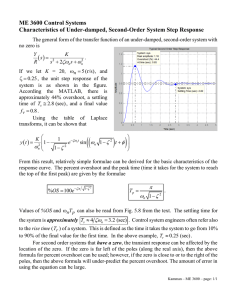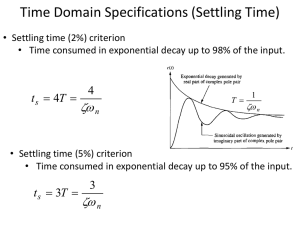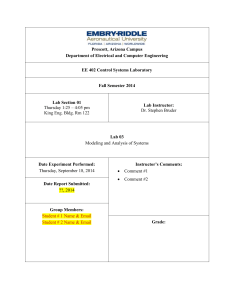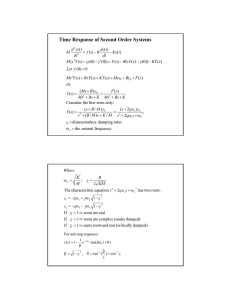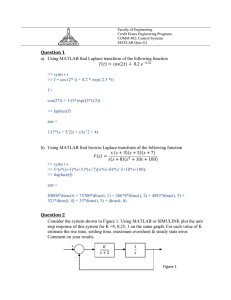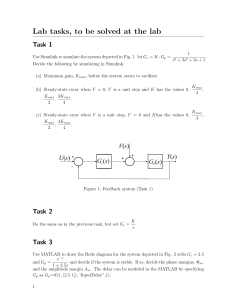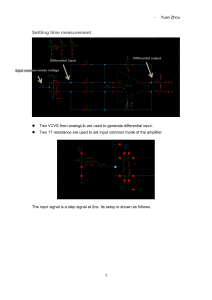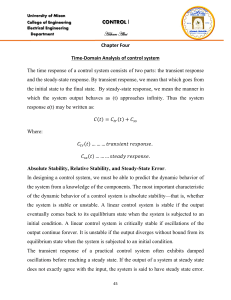HW#2
advertisement
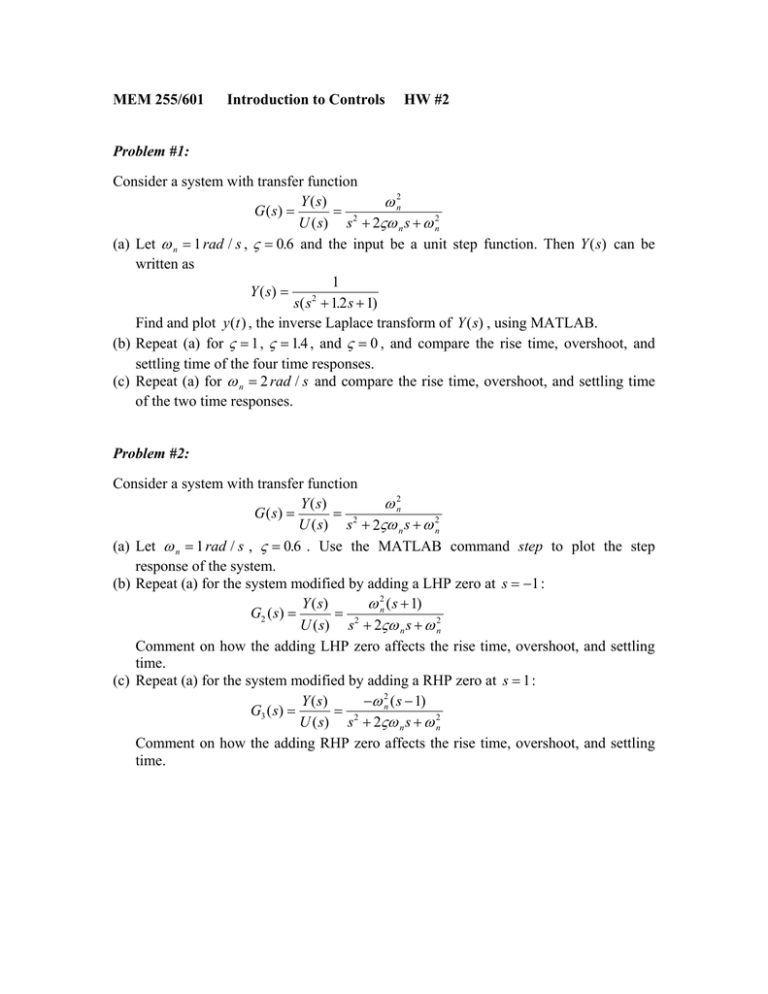
MEM 255/601 Introduction to Controls HW #2 Problem #1: Consider a system with transfer function Y ( s) 2n G ( s) U ( s) s 2 2 n s 2n (a) Let n 1 rad / s , 0.6 and the input be a unit step function. Then Y ( s) can be written as 1 Y ( s) 2 s( s 12 . s 1) Find and plot y (t ) , the inverse Laplace transform of Y ( s) , using MATLAB. (b) Repeat (a) for 1, 14 . , and 0 , and compare the rise time, overshoot, and settling time of the four time responses. (c) Repeat (a) for n 2 rad / s and compare the rise time, overshoot, and settling time of the two time responses. Problem #2: Consider a system with transfer function 2n Y ( s) G ( s) 2 U ( s) s 2 n s 2n (a) Let n 1 rad / s , 0.6 . Use the MATLAB command step to plot the step response of the system. (b) Repeat (a) for the system modified by adding a LHP zero at s 1 : 2n ( s 1) Y ( s) G2 ( s) U ( s) s 2 2 n s 2n Comment on how the adding LHP zero affects the rise time, overshoot, and settling time. (c) Repeat (a) for the system modified by adding a RHP zero at s 1: 2n ( s 1) Y ( s) 2 G3 ( s) U ( s) s 2 n s 2n Comment on how the adding RHP zero affects the rise time, overshoot, and settling time.

